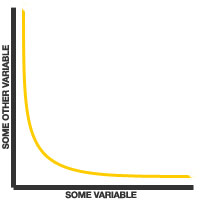Leveraging the web for anti-oppression work
I'm not the only person to suggest that the very nature of the web challenges existing power structures, but harnessing that nature into specific projects that can be completed in a reasonable amount of time with limited resources requires more thinking.
It's workplanning season where I work and everyone is struggling to incorporate the organization's anti-oppression and diversity initiatives into their priorities. On the one hand, I'm very lucky because I've got the web in my corner—clearly the biggest force for democracy since the printing press. On the other hand, thinking outside of the server-shaped box is sometimes difficult for the technically minded and there's clearly a huge difference between the possibilities inherent to the medium and the capabilities of a small web team at a non-profit. What follows is not a list of the projects I'm pursuing over the next 12 months, but the principles that are guiding my brainstorming. Please feel free to suggest some actual projects (or challenge my anti-oppression analysis).
Oppression, as I'm using the term, is ideological domination resulting in exploitation of one social group for the benefit of another. Racism is a form of oppression based on ethnicity, valuing (at least in the United States) people of European descent over African, Native American, etc. Sexism is another based on gender and there are lots more. A common tendency is that these dominant ideologies tend to be both reinforced from a centralized source (mass media) and also internalized by oppressor and oppressed alike—to the point where (for example) a woman might believe that she could never be as good a lawyer as a man because she's "too emotional".
Now, some ideas on how the web can help.
Open the vectors. McKenzie Wark's "A Hacker Manifesto" (have I mentioned I love manifestos?) well describes a Vectoralist Class which maintains its power largely by controlling access to information, not land or wealth. Considering the role that mass media plays in reaffirming oppressive narratives (e.g. all African American youth are in gangs), opening the vectors so that marginalized stories can be told is an immediate disruption. This process involves relinquishing editorial control and finding alternative methods of distribution, for instance community-generated feeds replacing hand-picked content or facilitating non-traditional authorship (i.e. stewarding content from an oppressed community to the mass media). It's important to examine both the input and output, so the content that's being produced (and valued) and the ways it's being disseminated without being manipulated to conform to pre-existing standards.

Interrupt feedback loops. The coder in me might suggest that power and privilege seem (ironically?) to follow a Power Curve. A Power Curve, aka Zipf Law, aka the Pareto Principle is a relationship exhibited in lots of situations, but most often when previous performance affects future performance—called the Yule Process. Popular websites get linked to more often than non-popular websites, making them more popular. Books that sell well appear on lists or are talked about, making them sell better. The rich get richer, the poor get poorer. On the web, it was pointed out long ago that there's still a lot of area under the curve and the web lacks the necessity of focus that makes the it possible to dominate an entire field. Amazon.com isn't limited by shelf space, it can offer a book that sells very few copies. A local movie theater has to show movies it knows will make money so it can pay rent; YouTube doesn't. LonelyGirl15 or ZeFrank are stars without ever having begged Paramount to distribute them.
Challenge the story. Digging up dirt seems like what the internet does best. As our failing Fourth Estate sleeps on the job, citizen media and general muckrakers do their job for them. It's not just journalism-type information that's getting out into the public because of the internet. The amazing Maplight project (which just won NetSquared's Innovation Award) connects corporations that give legislators money to how those legislators then vote on legislation supporting those corporations. Following the money and seeing how bought your Senator is has never been easier. Personally, I think this would be one of the biggest (and first) losses if network neutrality failed to be safeguarded.
Man, this was a hard one to write. Everyday posts are a bitch.